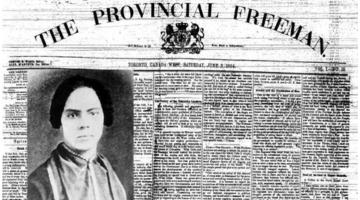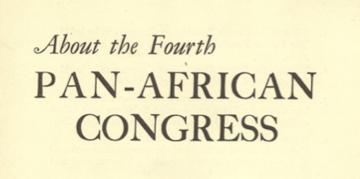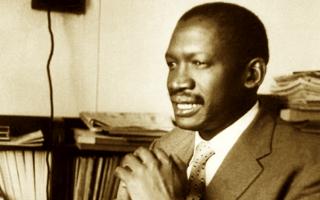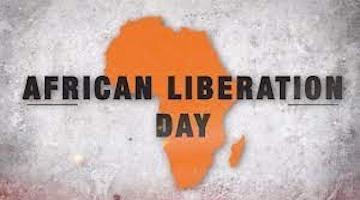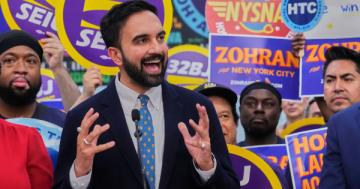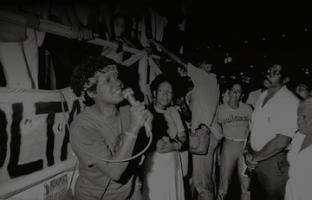Africans have flooded into the streets of Britain, Germany, Brazil, France and many other countries, not only in solidarity, but also as part of their own resistance.
“Police officers and sheriffs are very much a part of a broader, global military enterprise.”
It can’t be said that the thousands of fist-waving, mask-wearing, hard-marching Africans in North American streets are all dressed up with no place to go. We can say that many don’t know where they are going.
After nearly two weeks of rage-filled street manifestations triggered by the cold-blooded, racist murder of George Floyd, the demonstrators’ demands tend toward the conventional. The usual calls for better training, diversity in police ranks, different policies, stricter discipline, and increased black voter turnout have been spiced up only by new demands for the de-funding of police agencies.
Missing from the thoughts and analyses of many is the fact that the resistance is global, which is a phenomenon of great consequence that informs the direction current struggles should take. Africans have flooded into the streets of London, Germany, Brazil, France and many other countries, not only in solidarity, but also as part of their own resistance to abuse they experience in their own countries. The protests are coming from every direction. As the African Union issued a statement of condemnation of the Floyd murder, people in the most unlikely places like Mexico and Australia were also demonstrating solidarity with African people.
“The protests are coming from every direction.”
One of the more eloquent expressions coming out of Africa is by a large group of artists, athletes, scholars, journalists and others. Signers of this “We Will Not Remain Silent” proclamation include not only names well-known in America like Youssou Ndour, Akon, Salif Keita, Baba Maal, Dikembe Mutombo, and Djimon Honsou, but also nearly 100 other distinguished African professionals. It says in part:
“We cannot remain silent because we know how much we have in common with our brothers and sisters in our global black community – our African Diaspora. We know how your ancestors continued the resistance and the struggle for emancipation and dignity during the solitary traumas lived in the hulls of slave boats and the humiliation of plantations, and on the islands of freedom they built through the ages. That is the determined struggle for civil rights that you continue to wage fearlessly. Africans on the continent and around the world are grateful to African Americans and black leaders, writers, and thinkers for sharing with our elders the emancipatory idea of Pan-Africanism and for being connected with our struggles against colonialism and, of course, apartheid.”
“We know how your ancestors continued the resistance and the struggle for emancipation and dignity.”
This historical moment presents an opportunity to step back from what have to date been very local struggles against police brutality, and to understand that global imperialism operates a global killing machine which has as its function the domination of oppressed African humanity through the use of paramilitary and military force. While we in the U.S. are accustomed to thinking only of blue uniform-wearing, baton-wielding police officers when we think of police brutality, police officers and sheriffs are very much a part of a broader, global military enterprise. This has been made clear in recent days by the deployment of National Guard troops as the second line of defense against more militant resistance.
Africa itself has long been targeted for not just abusive policing, but full-scale militarization. Right now, U.S. Africa Command (AFRICOM) boasts of having a “Special Purpose Marine Air-Ground Crisis Task Force” that provides the capacity to deploy U.S. Marines and Naval personnel in Africa. The Command’s website also admits to having U.S. fighter pilots on standby near French uranium mining operations in Niger. AFRICOM admits to having conducted 39 airstrikes in Somalia in 2020. Those operation supposedly target only violent extremists, but the Pittsburg Post-Gazette notes: “…while the U.S. military has only admitted to two civilian casualties in Somalia over the past decade, the count by the not-for-profit research group Airwars places the number as high as 142.”
“Global imperialism operates a global killing machine.”
What drives imperialists to attempt to maintain such a violent, iron grip on African populations around the world? It is the vision articulated so beautifully by the “We Will Not Remain Silent” document. It says:
“.. We also have good news to share with our African American brothers and sisters; news that goes beyond the clichés, rebukes all forms of racial profiling, and updates old beliefs into fresh reality: a new Africa is truly emerging before our eyes. A resilient Africa carried by our communities and a dynamic and enterprising civic society, animated by a generation of young people and women determined to lift the continent from the fatality of despair, and create a future of unity in freedom, dignity and abundance. Together, we are the soldiers of hope engaged in the building of a new African nation, deeply rooted in our strongest cultural heritage, with the ideological and intellectual contributions of African American achievements. In this spirit, we the people of Africa are one people, and one nation. We are a 1.3 billion strong nation stretched out over a whole continent, and with you in the African Diaspora, we are millions more. Together we can build the global African nation. It will be our nation, and we will name squares and schools after the countless other heroines and heroes of African descent. In memory of our common ancestry, the new Africa will be conceived as our common home.”
From the perspective of imperialism, that is a dangerous vision that must be crushed at all costs and by any means. It is also a vision of an Africa that should inform every African protester about the reasons for police/military brutality. If we must march, let us march against global anti-African policing while advancing ever forward to the establishment of the Africa that terrifies imperialism – a liberated, united and socialist Africa.
Mark P. Fancher is an attorney and writer. He is a member of the All-African People’s Revolutionary Party and the Black Alliance for Peace Africa Team. The views expressed are his own and do not necessarily reflect the positions of organizations with which he is affiliated. He can be contacted at mfancher[at]comcast.net.
COMMENTS?
Please join the conversation on Black Agenda Report's Facebook page at http://facebook.com/blackagendareport
Or, you can comment by emailing us at comments@blackagendareport.com



